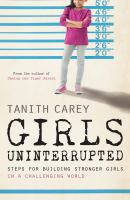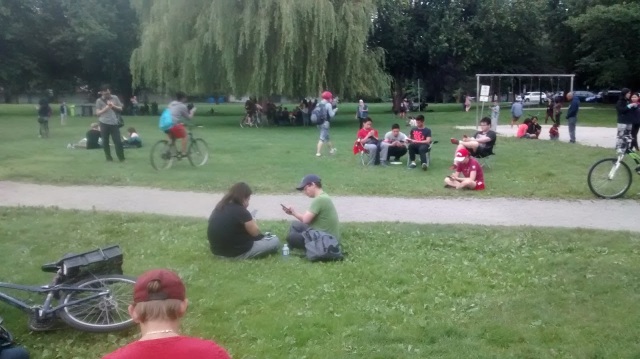
You may wonder why I’m adding notes from this book on a blog about raising boys. It’s because boys need to know about girls and how our society stereotypes, portrays, and belittles them. It’s important to help our boys develop healthy relationships with the girls and women in their lives. And to help see that both sexes are vulnerable to damaging stereotypes that need to be challenged.
The sections of this book that I took notes on are:
- Healthy Self worth
- Friends
- Fathers
- Emotional Intelligence
- Brain Chemistry
- Rebuilding Connections and recovering empathy
- Porn
- Building communication (for older girls)
- Online awareness
Points I thought were most important or particularly insightful are marked with an asterisk *
There are more sections of this book to do with older girls (ages 14+) but I didn’t take notes on those since I’m not at that stage yet – any takers?? 🙂
______________________________________________________________________
BOOK NOTES
The author says she wrote this book to help our girls understand how to navigate the sexism of our culture so they grow to be healthy adults with healthy relationships
Encourage “bad girl” behaviour – according to girls, a bad girl is one who argues, doesn’t care about her body image, doesn’t care what people think, has a tough attitude, speaks her mind, and stands out
Give girls encouragement to open their eyes to a world which might otherwise give them deeply unhelpful (and I would say unfair and unkind) messages about who they are and how they feel about themselves
If our daughters believe what they see around themselves continuously they start judging themselves by adult sexual standards
__________________________________________________________________________
WHAT A HEALTHY SENSE OF SELF WORTH WILL GIVE A DAUGHTER
It will protect her from the effects of underlying societal messages
She won’t desperately need reassurance from her peers about what she wears or does
She will know herself well enough to protect herself from bitchy put-downs or bullying
She won’t seek out unhealthy friendships and sexual relationships in order to make herself feel desirable, loveable, and worthy
She won’t feel defined by what she owns or wears
She will choose a partner worthy of her and will be less likely to end up in unhealthy relationships
She will take healthy risks because she has belief and trust in herself
She will forgive herself when she fails and bounce back more readily
__________________________________________________________________________
FRIENDS
Bad friends are ones who:
Don’t want her to play with others
Says her ideas are stupid
Laughs at her
Makes me feel sad
Pushes her to do things she doesnt’ want to do
Says they’re better than her
Hurts her
Threatens her
__________________________________________________________________________
FATHERS
If you can work flexible hours to accommodate to your daughter’s it’s a good investment of time
Plan things you can do together
Don’t judge others’ looks (at all and especially not in front of your daughter)
Keep hugging and maintaining physical closeness
Don’t segregate activities into boys and girls activities or teams
Fathers in particular need to guard against making their daughters into delicate flowers in need of protection; encourage her to build things, to stand up on her own, and to trust in her abilities
Ask mom to be go between to help interpret behaviour and reactions
Don’t tease her about her body or her looks
__________________________________________________________________________
EMOTIONAL INTELLIGENCE
Teach your girls to regulate, control, and understand their emotions
Give them tools to understand and control her dilemmas
Teach her to recognize and negative messages she hears in her head; not necessarily right and she doesn’t have to listen to it and also ways to counter/challenge those messages
Teach her that sadness is nothing to be ashamed of and that it takes some time to recover from
Give her the tools to look at the big picture of life
Ask your child to be kind to herself; around age 8 a girl can start being very hard on herself for doing or saying the wrong thing; tell her to replay a memory in her head and imagine her good friend reassuring her
Tell her to love herself and to know that she is looking out for herself
Encourage self respect – it’s not big headed but reaffirming that she knows and appreciates herself deep down
Brainstorm how to tackle emotional problems; don’t let on you (the parent) knows the answers but give tools to work out how to approach a dilemma. They know their enviro and the players better than you. Ask her what she thinks the best approach should be. Get older supportive sibs to share their experiences and insights
Let her solve her own challenges and problems
Ask her why she thinks people behave as they do (and talk about everyone’s perception of themselves as more hard done by, contradictory; put it into context
Respect your child’s opinion
Unpack your own emotional reactions (do this with boys too)
Teach your child that she is already the best person she can be and that there is a place for her unique gifts in the world
BRAIN CHEMISTRY
Only 4 basic emotions (joy, sadness, anger, fear) and everything else is a cocktail of these
Amygdala and brain’s chemistry responding to stress
Value of deep breathing and meditation
Hormones and mood swings
When she understands these, she will feel more in contended.
Watch (however painful) pop videos of girl singers, performers, movie stars
While waiting for a bus, analyze billboards
Most teen arguments are about their desire to be treated as adults
Girls like to keep secrets
If your daughter is going through a hard time trying to figure out her feelings or how to manage a situation, keep a book out that all of you can jot down notes in as you think of them
Girls may tell a story 3rd hand to get your reaction to an issue but the incident may really be about them.
Girls don’t tell when things go wrong because they think adults would make the situation worse (by talking about it or confronting it)
Yelling about their challenge to your authority is what girls fear most (if you find them doing something you don’t approve of)
Take a step back and compose yourself.
Show gratitude if she comes to you to confess or share
No shame; no blame
Don’t get angry if she shares something with you
Girls prone to perfectionism
When you first notice your daughter pulling away from you look at your own behaviour and acknowledge that you are part of the problem
___________________________________________________________________________________________
REBUILDING CONNECTIONS AND RECOVERING EMPATHY
When you first notice your daughter pulling away from you look at your own behaviour and acknowledge that you are part of the problem
*Let go of your ego and any indication that your child is somehow not repaying you by behaving in a way you expect
She’ll be more open if you acknowledge the fault is not her’s
Stick to giving her regular one-on-one time
Love-bomb her – spend a period of time along with her, offering unlimited love and control over activities and re-establish her trust
This takes the relationship back to its roots and stabilizes the “fight or flight reflex that gets engaged when they feel they’re continually being criticized, rushed, or judged
Sulkiness is a defense mechanism.
________________________________________________________________________
PORN
Remind daughters about seeing things on the internet and not being able to “unsee” them
Explain that porn is not the same as sex and discourage dressing provocatively (attracts the wrong kind of attn; not necessarily the young hotties but also the lechy, creepy, dirty older guys).
Explain the economic and political realities of porn, stereotypes, and marketing
Tell girls how boys and men, exposed to porn will unquestioningly expect women to behave
Name our culture for selling ideas of sexuality that are especially harmful to girls (but also to boys)
Bring back love and emotional commitment, patience, trust, affection, pleasure to sex
Tell her to take her time about sex and to be sure only to do it for the right reasons
Tell her how porn affects men
Teach her her rights and respect for her body
Talk to your sons and other boys and men in your life about this too
Warn them that porn is addictive (and that women suffer more low self esteem, depression, physical deprivations because of it)
___________________________________________________________________________
BUILDING COMMUNICATION – For older girls
Ease off on the tiger parenting – be aware of the distinction between encouraging the kids to do their best and pressuring them into thinking they must be the best, or they begin to view the relationship with us as jailers; seems like constant criticism and leads to gradual separation. Don’t allow her to think you value her for how she makes you look, not for how she really is.
Biggest misunderstandings come from how they think you feel about them and treat them; leave her in no doubt of your love for her and how much you value her
Keep hugging and making physical contact; 20 seconds a day will fill the minimum need
Keep talking
Eat together whenever possible; no lectures and put phones away
Check your body language; make eye contact; smile
Check your tone; one of the most hurtful is exasperation which makes the child feel she is a disappointment to you and you have lost faith in her.
Use humour to defuse tension; stress of life makes it easy to forget about the love and fun of family life; create in-jokes to keep the connection or watch silly videos together
Give children a voice with family meetings to help reset behaviour, explore developments in relationships, etc.
Don’t punish honesty or critiques of yourself – appreciate that your child feels empowered and secure enough to speak up for herself and see it as an opportunity for you to change
__________________________________________________________________________
ONLINE
There was a lot more on this subject, but because I’m this isn’t an issue for us yet I only scanned it, but here are a few notes I made anyway
Kid friendly search engines
Kids Click
Ask Jeeves
** Switch on the safety mode at the bottom of the youtube screen (she recommends this but I’m not exactly sure what this does – let me know in a comment if you know)
Teach skepticism
Don’t be lured by prizes or flattery and never fill in forms or enter contests without asking permission
Turn off broadband connection at a set time of night

 It makes me angry and sad to hear kids and adults make blanket statements about “teens” that are not only derogatory, but in my opinion, unkind and unfair.
It makes me angry and sad to hear kids and adults make blanket statements about “teens” that are not only derogatory, but in my opinion, unkind and unfair.

